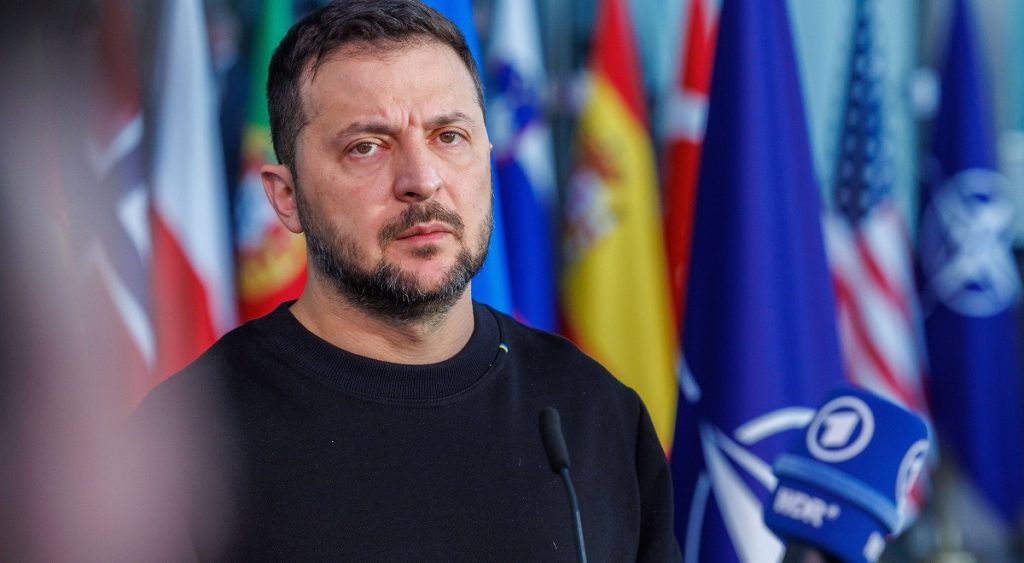The United States has announced sanctions against two Chinese companies believed to be involved in producing drones used by Russia in its ongoing conflict in Ukraine. According to a statement from the US Treasury, the sanctions also target a Russian company and its owner, Artem Yamshchikov, who acts as an intermediary between these firms and a state-owned Russian weapons company. As a result of these sanctions, the properties and interests of the designated entities within US jurisdiction have been frozen.
This move coincides with Ukrainian President Volodymyr Zelensky’s recent address to the EU Council, where he asserted that Ukraine possesses intelligence indicating that China is still actively supporting Russia in prolonging the war. The US Treasury specifically named Xiamen Limbach Aircraft Engine Co., which manufactures engines for Russia’s Garpiya long-range drones, and Redlepus Vector Industry Shenzhen Co. for its role in logistics and shipment.
US State Department spokesperson Matthew Miller emphasized the impact of these drones, often referred to as “suicide drones,” stating that they have been responsible for destroying critical infrastructure and causing mass casualties. Reports indicate that thousands of these drones have been produced since last year.
According to US Treasury official Bradley Smith, “Russia increasingly relies on foreign expertise and the importation of advanced technologies to maintain its weapons capabilities.” This highlights the complex international network supporting Russia’s military efforts.
In his speech, Zelensky also accused North Korea and Iran of providing assistance to Russia’s war campaign. He warned European leaders that Russian President Vladimir Putin aims to match their countries’ ammunition production capabilities by next year. Zelensky urged them not to relax sanctions on Russia, asserting that such measures are crucial for Ukraine’s defense.
Zelensky also reiterated the five-point victory plan he previously presented to the Ukrainian parliament. He expressed confidence that Ukrainian forces could maintain the front line and continue attacking Russian territory, provided that allies supply the necessary weapons. He emphasized the importance of applying military pressure on Russia to secure a just peace, which includes the ability to use long-range missiles against Russian targets.
“We propose deploying a deterrence package on Ukrainian soil that would either compel Russia to engage in genuine peace negotiations or allow for the destruction of their military assets,” Zelensky stated. He framed this strategy as a “peace through strength” approach, asserting, “Putin should respect our strength, not have the free world trembling at his threats.”
Despite Zelensky’s calls for enhanced military capabilities, allies like the UK and the US have so far refrained from permitting the use of long-range missiles against targets inside Russia. Putin has argued that such actions would equate to NATO countries directly engaging in warfare with Russia, although Western nations have previously crossed his “red lines” without facing retaliation.
Kyiv has expressed concern that its inability to strike the bases from which air strikes against Ukraine are launched significantly hampers its defense capabilities. Zelensky highlighted the surprise Kursk offensive by Ukrainian forces into Russia as evidence that “Putin does not have enough strength to hold on when we truly apply pressure.”
Zelensky’s plan includes continuing military operations within Russia to prevent the establishment of “buffer zones” in Ukraine. He also proposed that an invitation for Ukraine to join NATO would enhance its bargaining position, although he noted that immediate membership would not be necessary.
“Russia has exploited the geopolitical uncertainty stemming from Ukraine’s non-membership in NATO,” he stated, advocating for a decisive invitation to NATO that would lead to membership at a later date.
While Ukraine’s allies have expressed support, they have not yet formally endorsed Zelensky’s plan. NATO’s new Secretary General Mark Rutte acknowledged the importance of Zelensky’s proposal but indicated that commitment to Ukraine’s NATO membership would be a future consideration.
In response to Zelensky’s address, EU Council President Charles Michel emphasized the urgency of providing additional financial and military support to Ukraine, reinforcing the need for sustained international solidarity amid the ongoing crisis. As tensions continue to escalate, the international community’s response will be critical in shaping the future of Ukraine and its ability to withstand Russian aggression.







